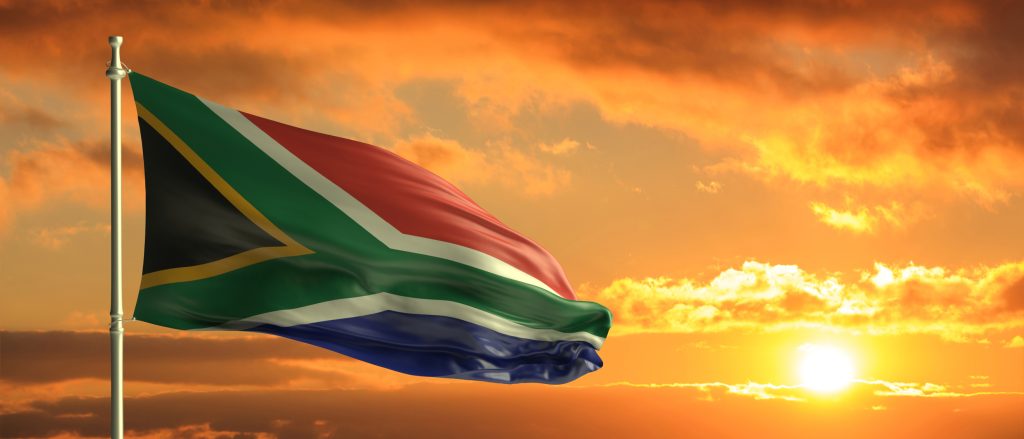South Africa Classifies Afrikaansas ‘Foreign’
[ad_1]

South Africa’s governing administration has touched off a storm just after it moved to classify native Afrikaans as a “foreign language.” For clarity’s sake, here is a hypothesis: this transfer would be equivalent to the US secretary of instruction quickly waking up and classifying English as a international language in America’s university curriculum.
Afrikaans is a locally built dialect of the authentic European Dutch language. White colonial settlers of Dutch, Germanic, and French origins made Afrikaans on landing in South Africa in the 1600s. Their descendants number four million currently in South Africa. Black South Africans make up roughly 47 million out of the nation’s 60-million-sturdy populace.
“Afrikaans has a sensitively contested historical past as the language of Black enslavement and racist apartheid legislation enforcement in South Africa. For Black South Africans, Afrikaans is a scene of a colonial crime,” says Kudakwashe Magezi, a sociologist and immigration rights activist in South Africa.
“For instance, on 16 June 1976, thousands of Black South African young ones in Soweto township, South Africa, marched against the colonial government’s initiative to impose Afrikaans as the special classroom language of instruction and drive Black college students to recite the Lord’s Prayer. Between 400 to 700 ‘rebellious’ Black college students have been murdered by White Afrikaans policemen in a working day.”
Language of Instruction
Due to the fact the finish of racist apartheid rule in South Africa, Afrikaans has been 1 of the country’s eight official languages and is the third most spoken language in the nation. But as Black South African postcolonial nationalism can take root, there have been gradual initiatives to dismantle the use of Afrikaans as element of a mission to revive marginalized Black South African languages.
So, in October 2020, Mr. Blade Nzimande, the South African minister of education, proposed an schooling invoice that seeks to power South Africa’s universities to designate additional experiments in earlier marginalized Black South African languages and address the linguistic injustices of European colonialism in the country. Afrikaans was rapidly selected a ‘foreign’ European language whose use in South Africa’s universities’ faculties should be discouraged.
Outcry
Leaders of the White Afrikaans-talking minority neighborhood in South Africa, who are in essence descendants of Dutch colonists, have hauled South Africa’s government right before courts and the UN Academic, Scientific, and Cultural Firm more than the endeavor to reclassify Afrikaans as a international language.
“This is disgusting reverse racism,” claims Leon Schreiber, a White Afrikaans-speaking lawmaker of Dutch ethnicity. Mr. Schreiber accuses the Black postcolonial South African federal government of bigotry and hatred of Afrikaans tradition and language.
“White Afrikaans-talking pupils are restricted to only 5% of destinations in medical educational institutions, they are efficiently stood down in army, write-up workplace, police, banking positions in favor of Black interns. The South Africa education minister openly hates the Afrikaans language,” claims Mr. Schreiber.
The Afrikaans-talking group in South Africa is inquiring why the language is suddenly remaining classified as overseas in the state even though English, another colonial European language, continues to be untouched.
“This is the peak of myopic discrimination. Afrikaans is invented in South Africa, not in Europe in Holland,” fumes Alana Bailey of Afriforum, a White basis that operates to progress Afrikaans speakers’ language, instruction, and group rights in South Africa. In May 2021, Afriforum sued the College of South Africa for discrimination mainly because it had taken out Afrikaans as the language of instruction at the university. Afriforum gained the scenario in September, when the South Africa Supreme Court declared that the designation of English as the only official language of instruction at the College of South Africa was unconstitutional. The court docket further more affirmed that college students of all ethnicities in South Africa have a correct to be instructed in their mom languages relatively than becoming subjected to English.
“It was a wonderful judgment,” states Bailey. “The racist endeavor to marginalize Afrikaans language in postcolonial South Africa is simply that—racist and shameful.”
Reverse Racism
Supporters insist that Afrikaans, an off-shoot of the European Dutch language, has roots (similes, verbs, accents, cues) built in South Africa in excess of 400 decades.
“This reclassification of the Afrikaans language as overseas is a sample of the reverse racism presently endured by White Afrikaans South Africa citizens,” provides Bailey.
On the other hand, Mr. Nzimande insists that he harbors no prejudice towards the Afrikaans language: “The White appropriate wing is around-occupied with the supremacy of Afrikaans language only and thus disregarding the 9 other languages in postcolonial South Africa. We are now a diverse, democratic South Africa, and Afrikaans has no particular lead in excess of other languages.”
[ad_2]
Supply website link
